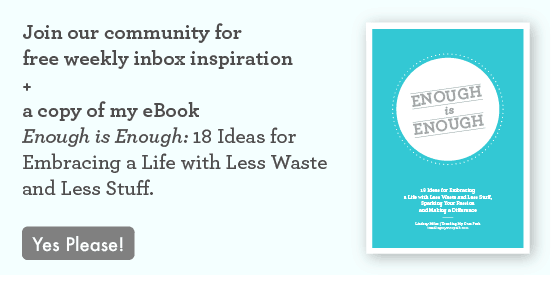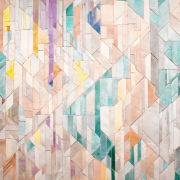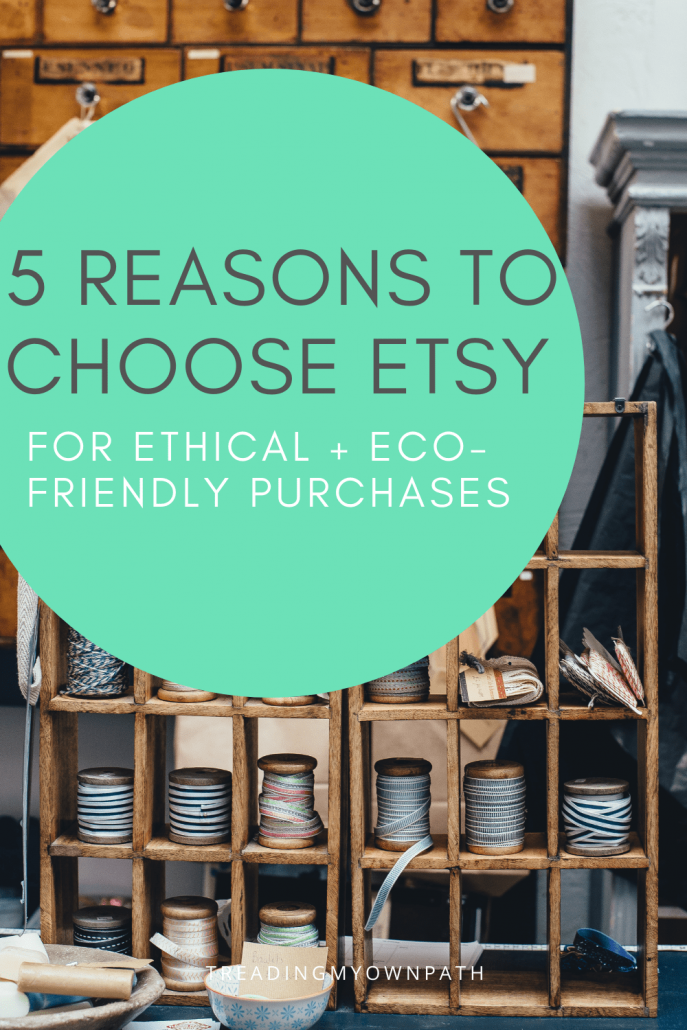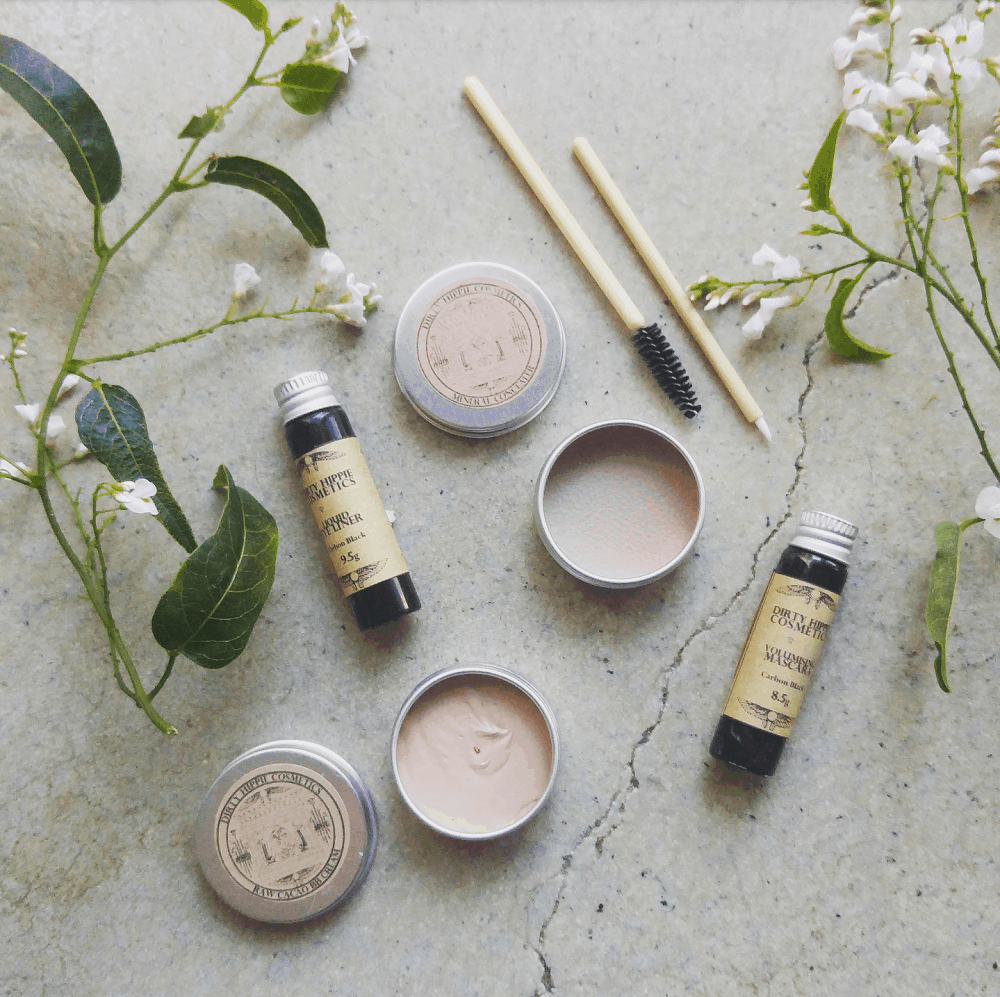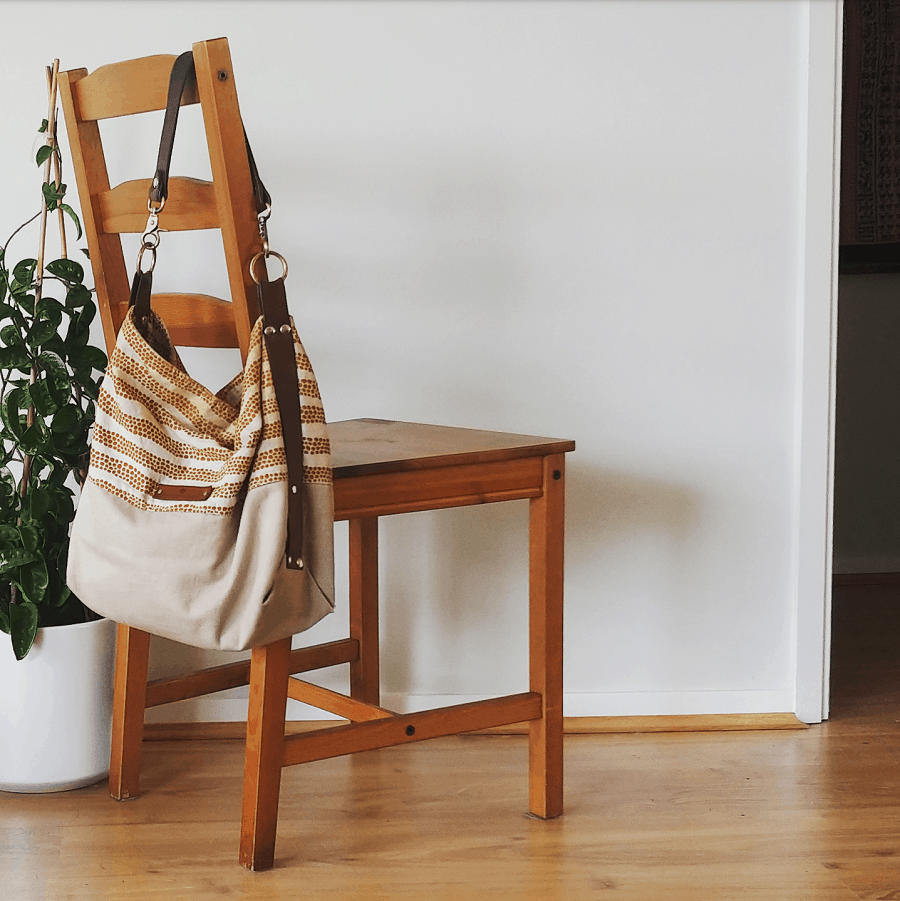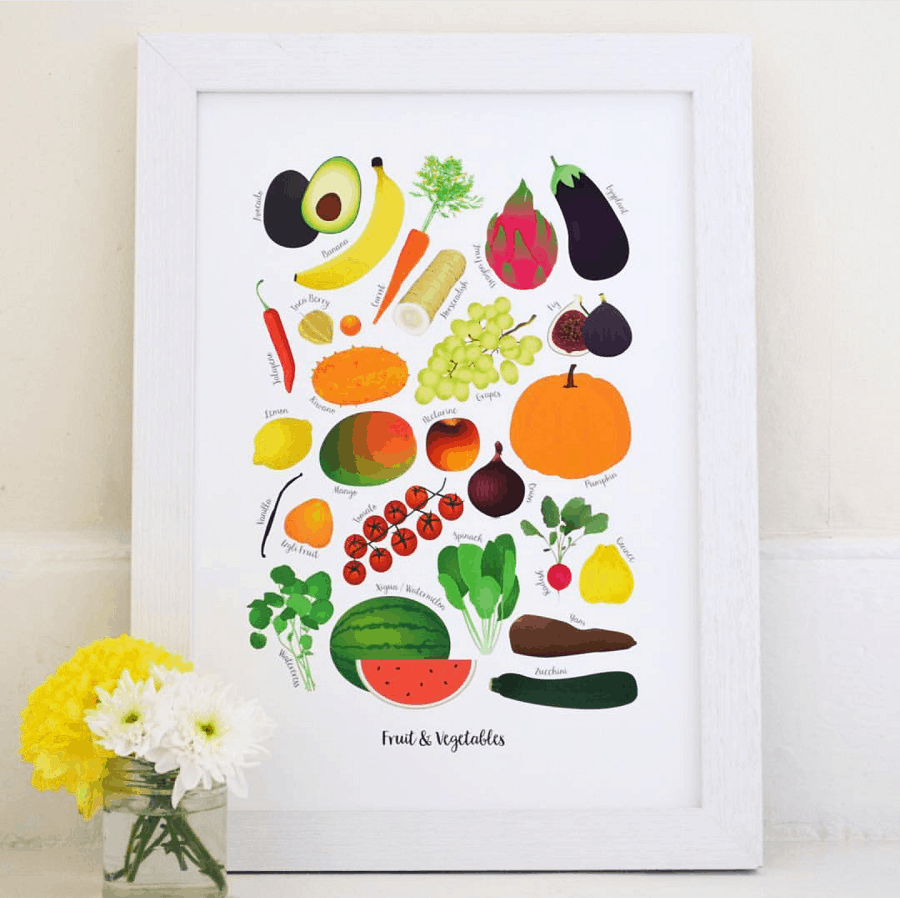Keeping waste out of landfill: 5 creatives transforming ‘trash’ into useful stuff
As someone who missed out on the ‘crafty’ gene, I’m always fascinated by people with the talent to create things. In particular, I’m in awe of those people with both the vision and the skill to take ‘waste’, and make it into something actually useful and practical.
What’s most impressive to me is when people are able to create things so good that people are willing to buy them. A demand for ‘new’ things made out of old things – the world definitely needs more of that.
I also think it’s very cool that people are able to make a living transforming waste.
There are a few such individuals and small businesses that I follow on social media. Now I’m not a buyer of things, particularly, but I find it very inspiring to watch others create, and make beautiful things from trash.
Here are a few of my favourites.
This post is in partnership with Etsy and contains affiliate links.

Tideline Art
Nicole is from London, UK, and makes art from the treasures she finds mudlarking, a term used to describe people who search the muddy shores of rivers looking for things of interest or value.
Being a mudlark along the River Thames was an actual job during the 18th/19th centuries, although not a particularly desirable one. Now it’s a hobby for people, who find all kinds of old bits and pieces that were thrown into the river and preserved in the mud.
There are plenty of people who mudlark and create art with their finds, but Nicole is one of my favourites. I just love the idea that Victorian trash now has value, and that others find it beautiful.
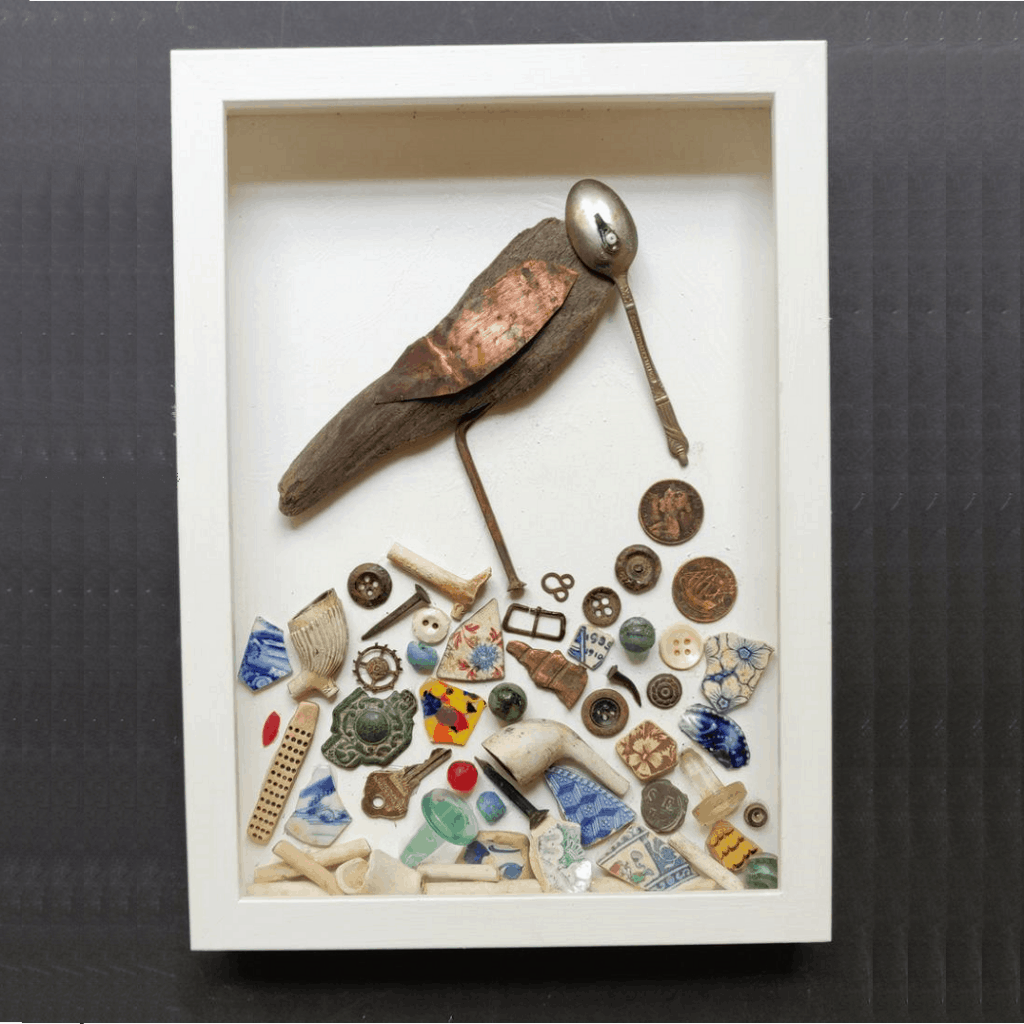
Plus, I love that Nicole always tries to find out the origins of the pieces she finds, and shares their stories.
Link to Tideline Art’s Etsy store.
Smartie Lids on the Beach
Michelle is from Cornwall, UK, and makes art from the plastic she finds at the beach. I’ve been following along on social media for a long time, and enjoy the combination of photographs of beach cleanups in action and the random things that wash up, as well as the later transformation into art pieces.
She’s probably best known for her amazing colour wheels, but also creates other fun items out of bits of plastic (her toothbrush fishes are one of my favourites), flower seed heads using nurdles, and other quirky pieces.
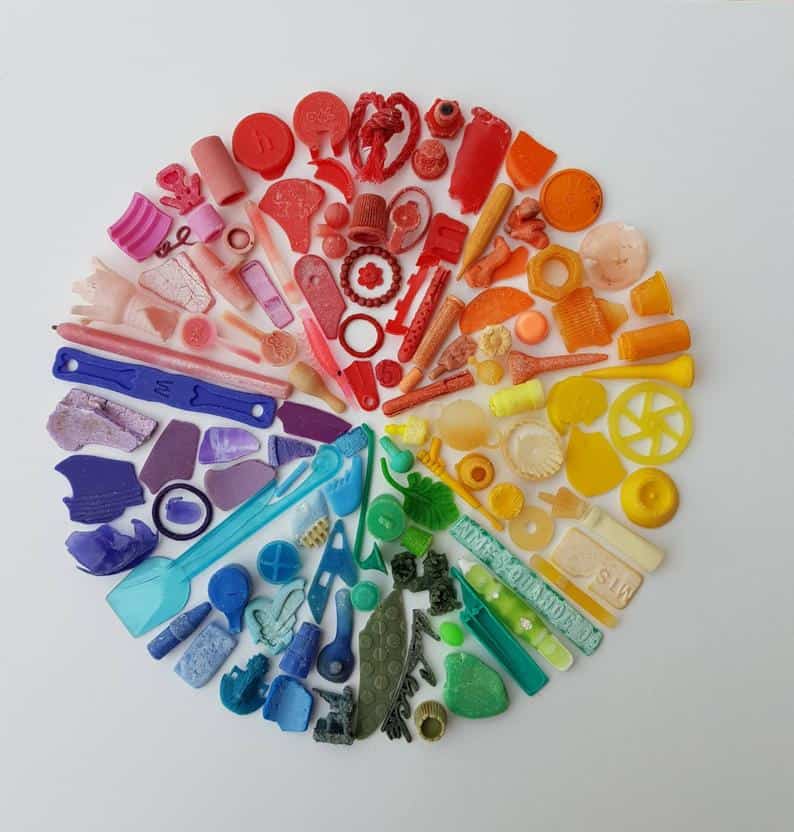
Link to Smartie on the Beach’s Etsy store.
Velo Culture
Run by Bev and based in Newcastle, UK, Velo Culture make wallets, belts, toiletries bags and phone cases out of old bicycle inner tubes. Upcycling at its finest.
I particularly love this because inner tubes are one of those unavoidable waste items, but still a really useful and usable material, even once they can no longer be used with bicycles.
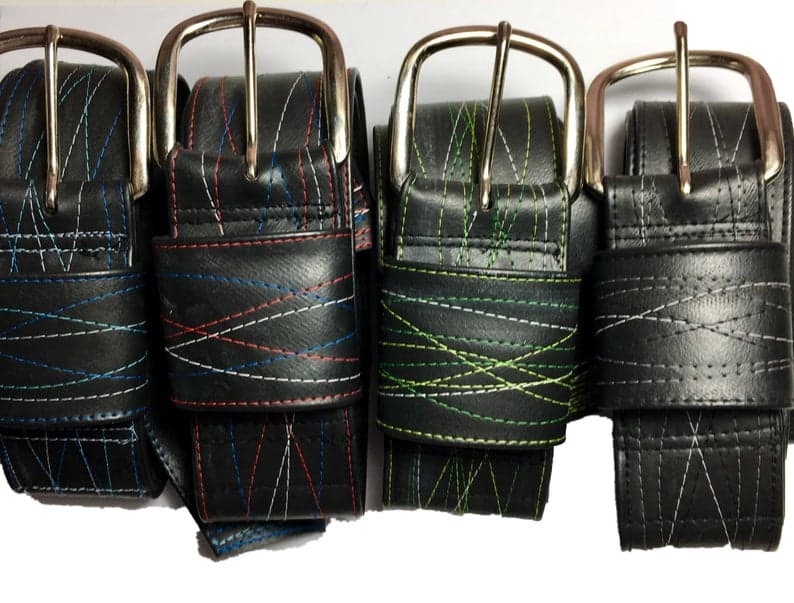
Velo Culture have had more than 7,200 sales since launching their Etsy store. That’s a lot of inner tubes (and the occasional bike chain and break cable) repurposed.
Link to Velo Culture’s Etsy Shop.
Wyatt & Jack
Wyatt & Jack are based on the Isle of Wight (UK) and make bags, clothes and purses out of old bouncy castles, broken inflatables and beach toys and damaged deckchairs.
But even better than that, they started Inflatable Amnesty. If you have a broken inflatable or punctured paddling pool that’s beyond repair, you can send it into Wyatt & Jack, who will make it into new bags! They will even cover postage.
And as you might expect from quirky inflatables and brightly-coloured bouncy castles, the products they make are FUN!
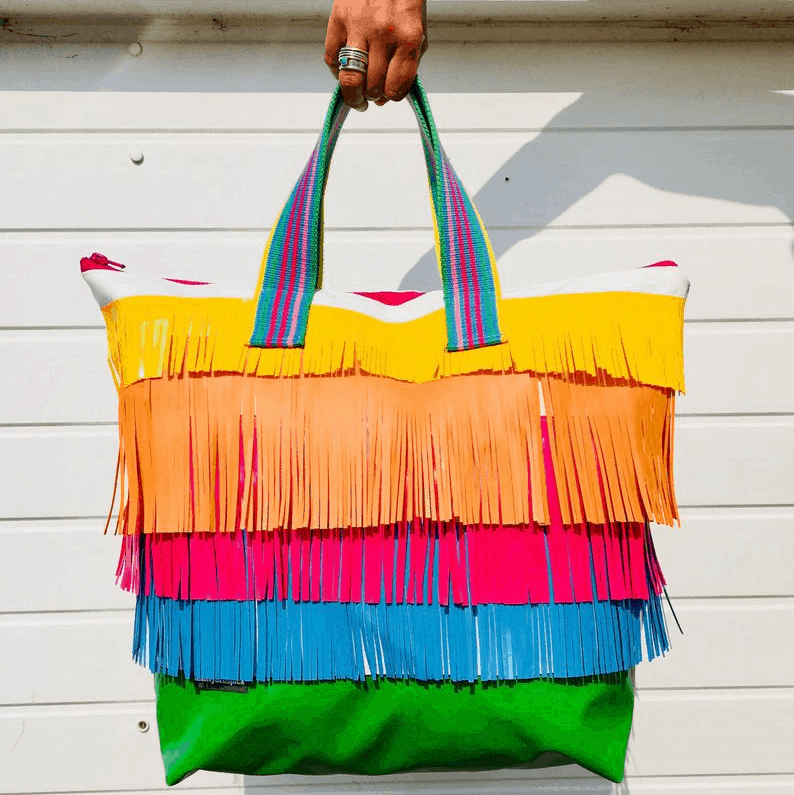
I’ve been in love with these guys since forever. The combination of repurposing pretty-tricky-to-reuse items into something so useful – and fun! – well, there’s nothing better.
Link to Wyatt & Jack’s Etsy store.
One Fine Phoenix
This post wouldn’t be complete without including zero waste reusables, and my favourites will always be those using old materials (rather than new) for making their products. There are plenty of stores offering new versions, but finding reusables made from reused is the ultimate in zero waste, in my view.
Siobhan from One Fine Phoenix (based in New South Wales) only stocks products made with second-hand and vintage fabrics. She creates hankies, cleaning cloths, cutlery wraps, unpaper towel, make-up remover pads and the like.
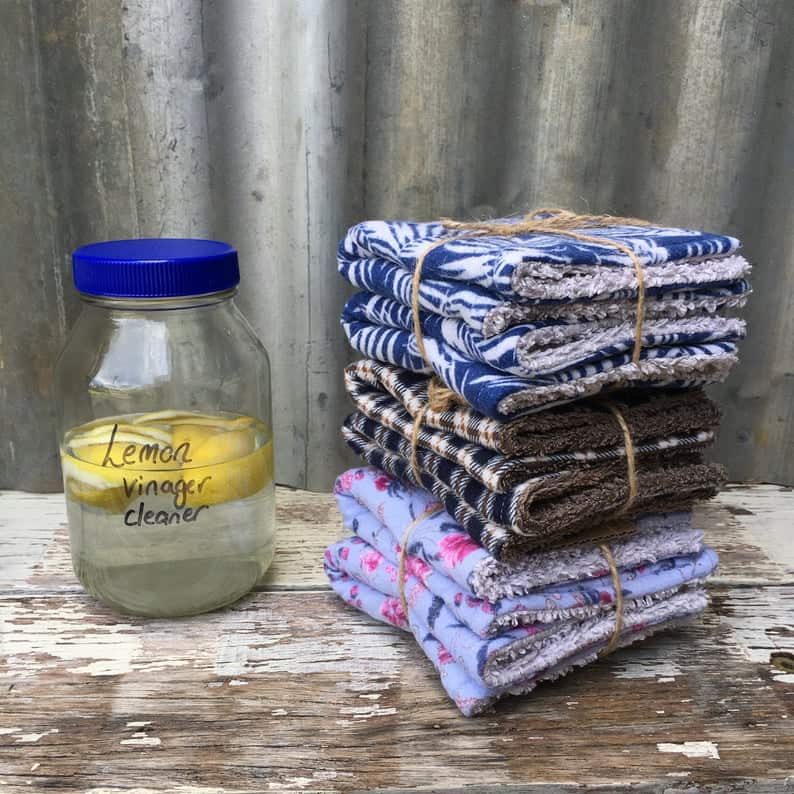
One for those of us who don’t know how to sew. (Also, loving the DIY lemon vinegar props!)
Link to One Fine Phoenix’s Etsy store.
I’m constantly amazed by the things that people create out of ‘waste’ products. This list is hardly comprehensive (and if you have favourites I’d love to hear about them in the comments) but it goes to show that with a creative mind, people really can turn trash into treasure.
Now I’d love to hear from you! Do you have the ‘crafty’ gene? What have you upcycled? Are there any cool projects and businesses you’ve found doing great stuff? Do you have one yourself? Anything else to add? Share your thoughts and leave a comment below!


